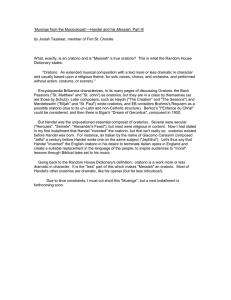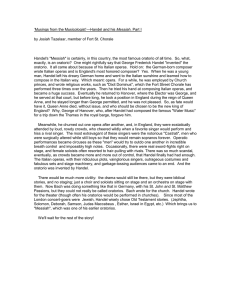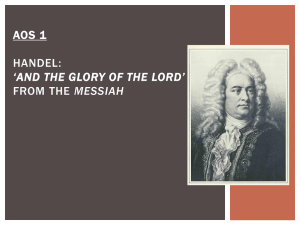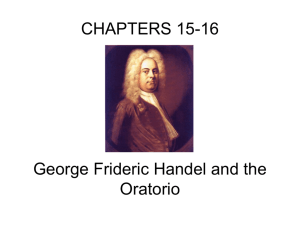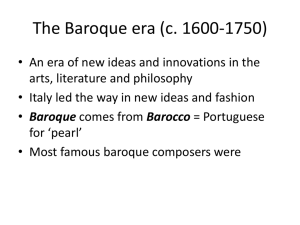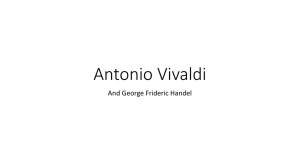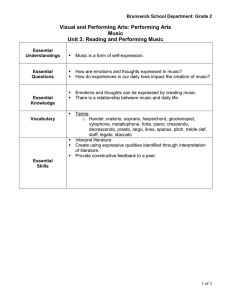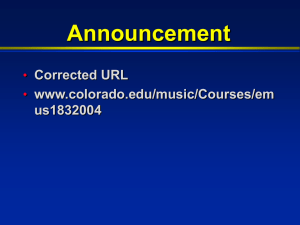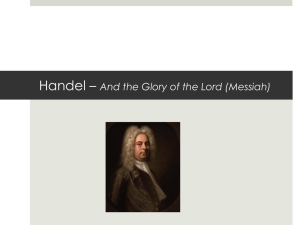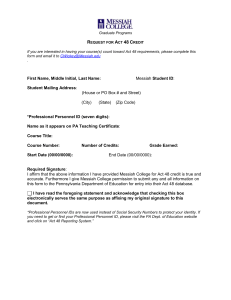Messiah by Josiah Tazelaar, member of Fort St. Chorale
advertisement
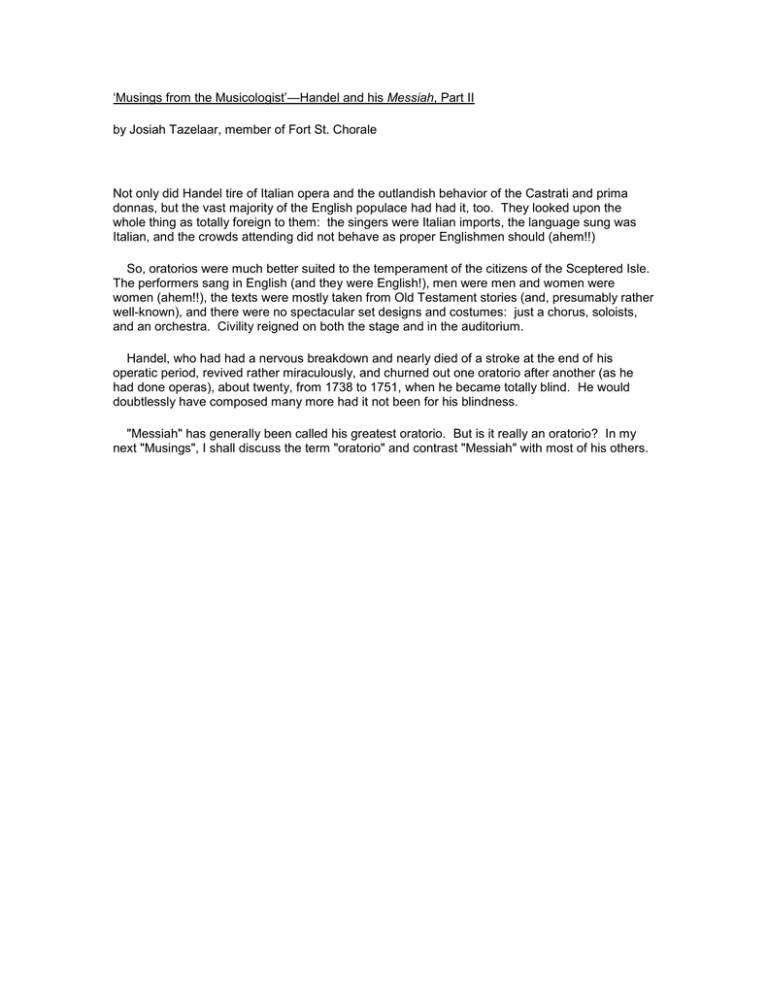
‘Musings from the Musicologist’—Handel and his Messiah, Part II by Josiah Tazelaar, member of Fort St. Chorale Not only did Handel tire of Italian opera and the outlandish behavior of the Castrati and prima donnas, but the vast majority of the English populace had had it, too. They looked upon the whole thing as totally foreign to them: the singers were Italian imports, the language sung was Italian, and the crowds attending did not behave as proper Englishmen should (ahem!!) So, oratorios were much better suited to the temperament of the citizens of the Sceptered Isle. The performers sang in English (and they were English!), men were men and women were women (ahem!!), the texts were mostly taken from Old Testament stories (and, presumably rather well-known), and there were no spectacular set designs and costumes: just a chorus, soloists, and an orchestra. Civility reigned on both the stage and in the auditorium. Handel, who had had a nervous breakdown and nearly died of a stroke at the end of his operatic period, revived rather miraculously, and churned out one oratorio after another (as he had done operas), about twenty, from 1738 to 1751, when he became totally blind. He would doubtlessly have composed many more had it not been for his blindness. "Messiah" has generally been called his greatest oratorio. But is it really an oratorio? In my next "Musings", I shall discuss the term "oratorio" and contrast "Messiah" with most of his others.
